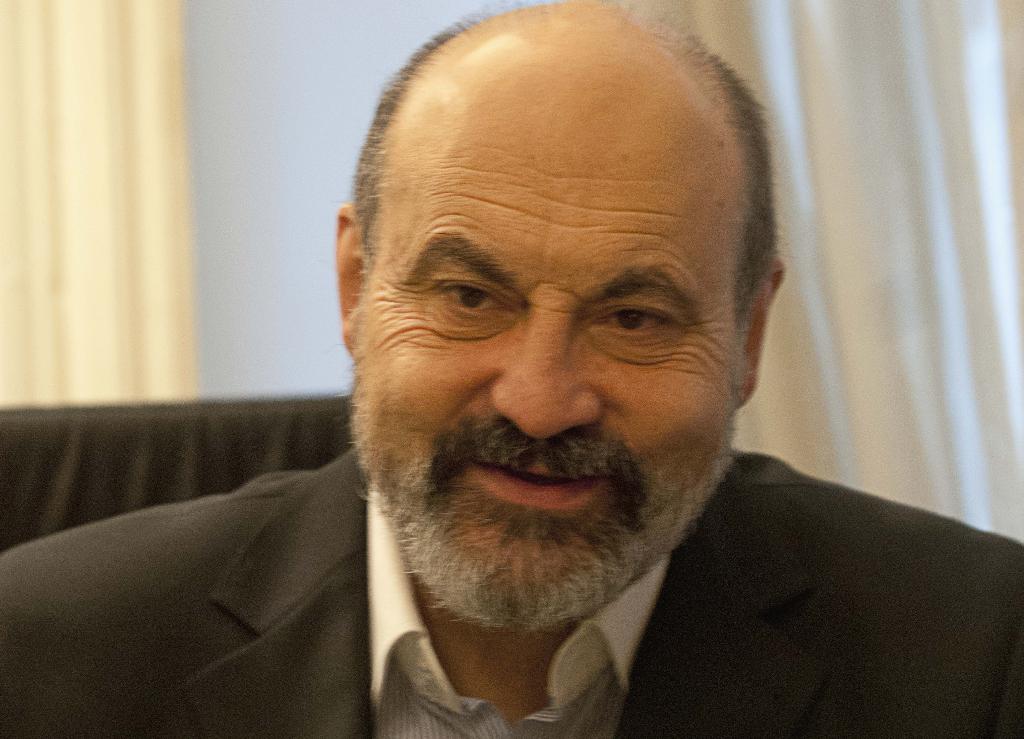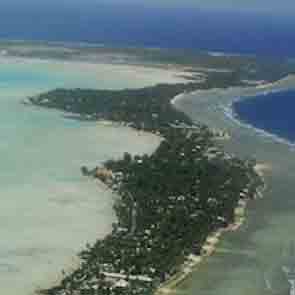Anote Tong, the President of Kiribati, a conglomerate of 33 atolls stretching 2,500 miles either side of the equator in the centre of the vast Pacific Ocean, last year bought 20 square miles of forestry 2,000 miles away on Vanua Levu, Fiji, as a possible refuge, should the worst come to the worst, for their population of 110,000 people.
Within a few decades we are likely to see some small islands in the Pacific and Indian oceans being submerged. In such a context, worldwide debates about the ethics of recycling, of reducing our carbon footprint, and of challenging our “throwaway culture” seem remote. For the population of Kiribati – which is similar in number to a medium-sized English town (think Eastbourne) - and across the Pacific Rim it has become a matter of survival, and above all, addressing the plight of those most vulnerable.
Last month, I visited churches and communities to lead a series of leadership reflections on Climate Change in Tonga, Samoa and Fiji at the invitation of at the invitation of the Most Revd Dr Winston Halapua, the Archbishop of Polynesia.
For many, across the Pacific islands, there remains much scepticism ahead of this December’s Paris Climate Change Summit. No matter what is decided in a faraway European city, it will feel like much too little, too late. It was too late last year for the villagers of Vunidogolo, who had to relocate their whole community two kilometres inland to higher ground.
I stood on the beach with those who said ‘the tides never used to come this far, there used to be plants here that now don’t grow any more because of the salt’. They know that they cannot control the sea coming in, but they can plant mangroves along the sea front to act as a barrier and to prevent further loss of land. I was bestowed a Chief or ‘Matai’TO’OSAVILI in the village of Poutasi in the District of Falealili and joined in planting mangrove seedlings on the coastline of Pangaimotu Island.
The fact is, wherever you are, Poutasi in Samoa or Pickering in the great vale of Yorkshire, the ground of God’s Earth is holy. On ground, on land that is the meeting place of Earth and Heaven, a place of encounter with the living God. Where Heaven touches earth surprising things happen. For our gracious God makes the impossible possible. But friends, around the globe we are waking up to a new reality. Our sleepy eyes are opening.
Pope Francis’ Encyclical – Laudato Si: Praise Be: On the Care of the Commonhome - following the Canticle of the Creatures, in Francis of Assisi - made climate change centre stage for the Church. Why? Because “Climate Change is a global problem with grave implications and represents one of the principal challenges facing humanity in our day”. (p.14ff). And quoting the New Zealand Catholic Bishops Conference Statement on Environmental Issues, Pope Francis recently asked: “What the commandment ‘Thou shall not kill’ means, when ‘20 per cent of the world’s population consumes resources at a rate that robs the poor nations and future generations of what they need to survive.’?"
The Church of England at its July Synod sessions welcomed the new climate change policy adopted by the Church's investing bodies and backed a call for world leaders to seek to limit the global rise in average temperatures to a maximum of 2 C - widely considered to be the threshold above which the impacts of climate change will be the most severe.
In my reflections, I spoke of us being pilgrims, strangers and sojourners on this earth. We have reached a great moment of opportunity and challenge – will the nations of our global village wake up to our shared responsibilities? The implications of the Gospel are all the more clear – we are to love one another as God in Christ has loved us.
We must be a church of the poor with a Gospel of hope. I love Ethopia’s Amharic word, which means ‘It is possible’: Yechelaler – it should inspire hope in us all. May God give us grace in our time to know and treasure the holiness of the Earth he has made us stewards of, and the ground he has set us on, so that we may meet with him, and be gathered up into his purposes in and with the whole of creation.




 Loading ...
Loading ...
What do you think?
You can post as a subscriber user ...
User comments (0)